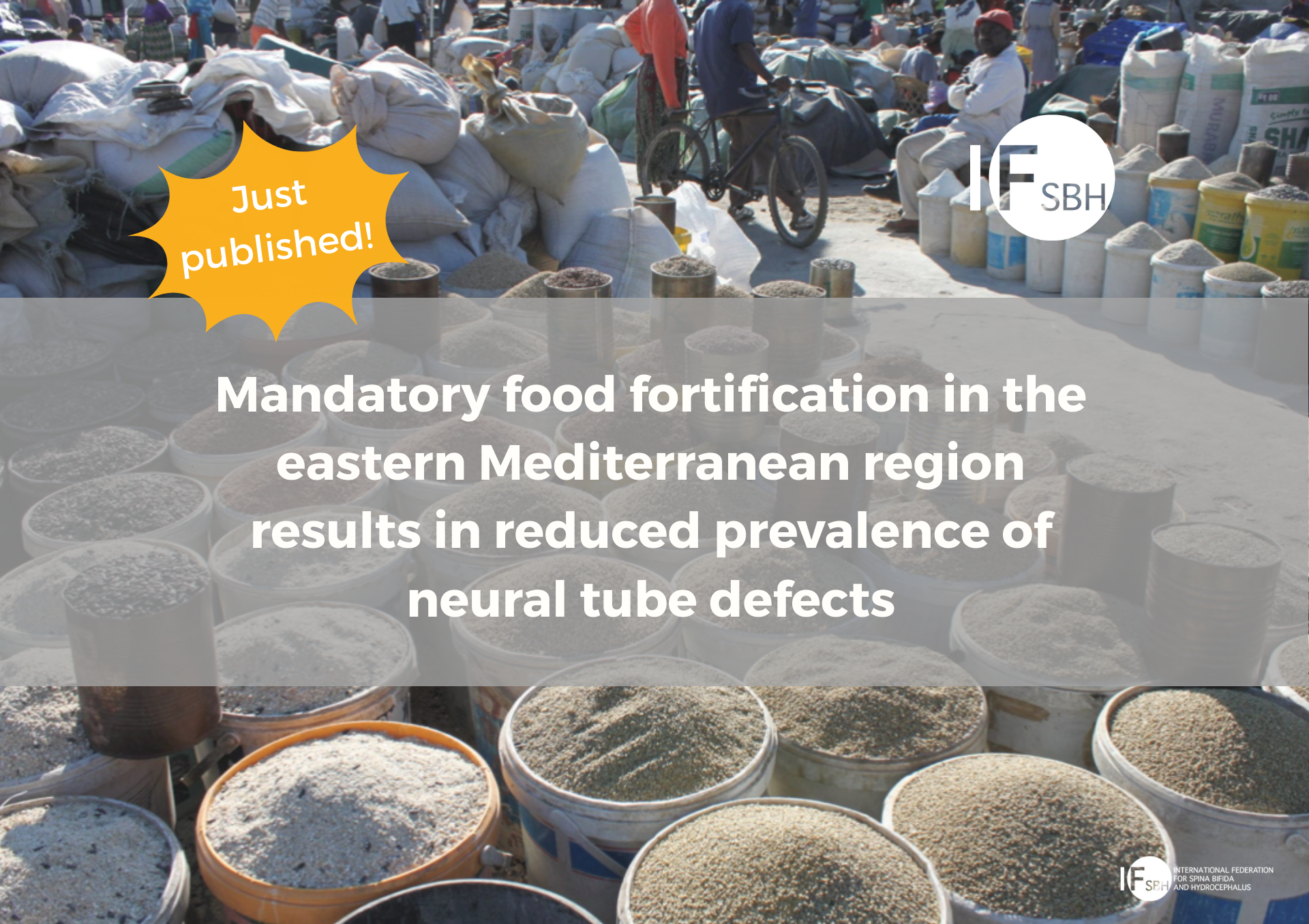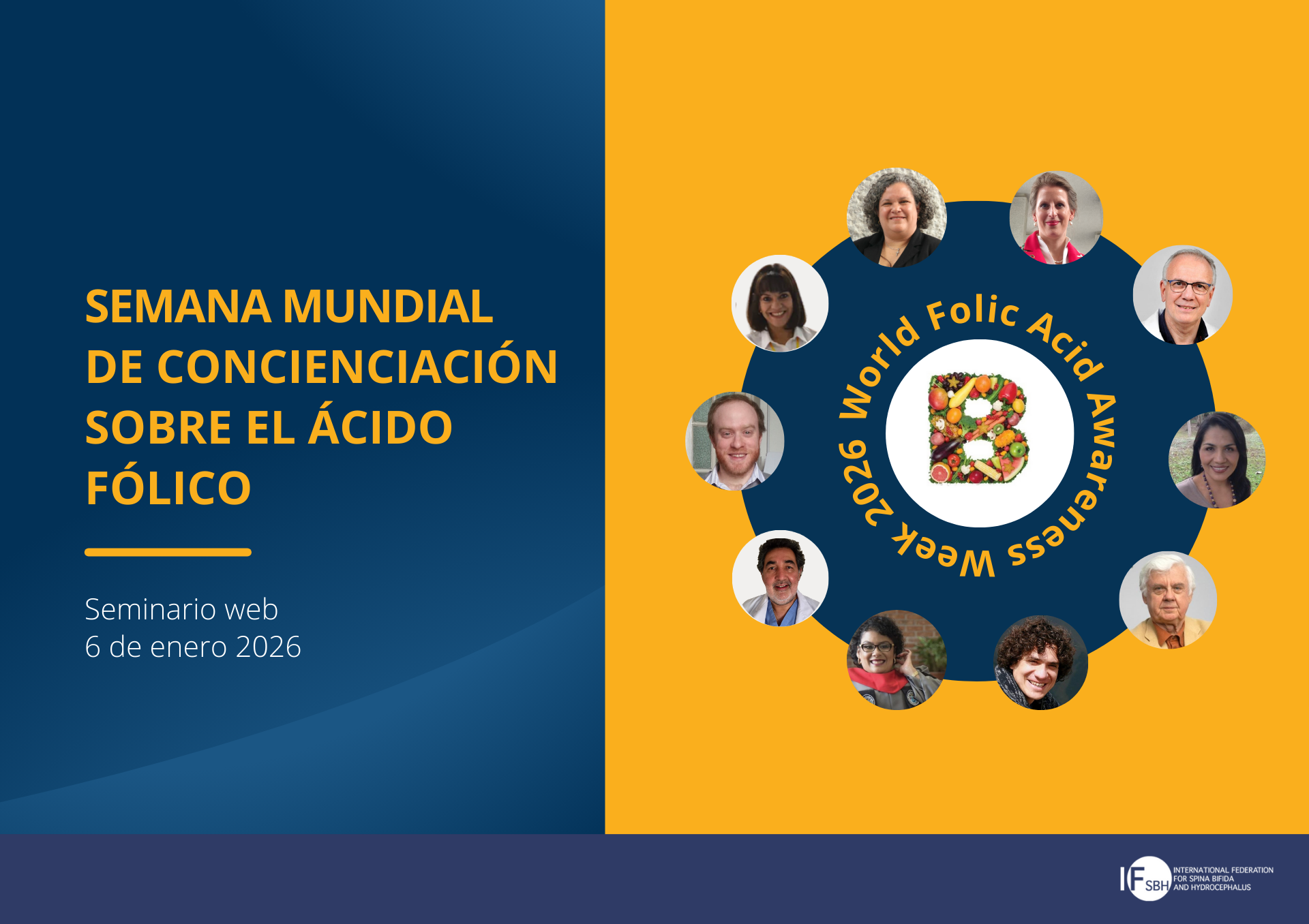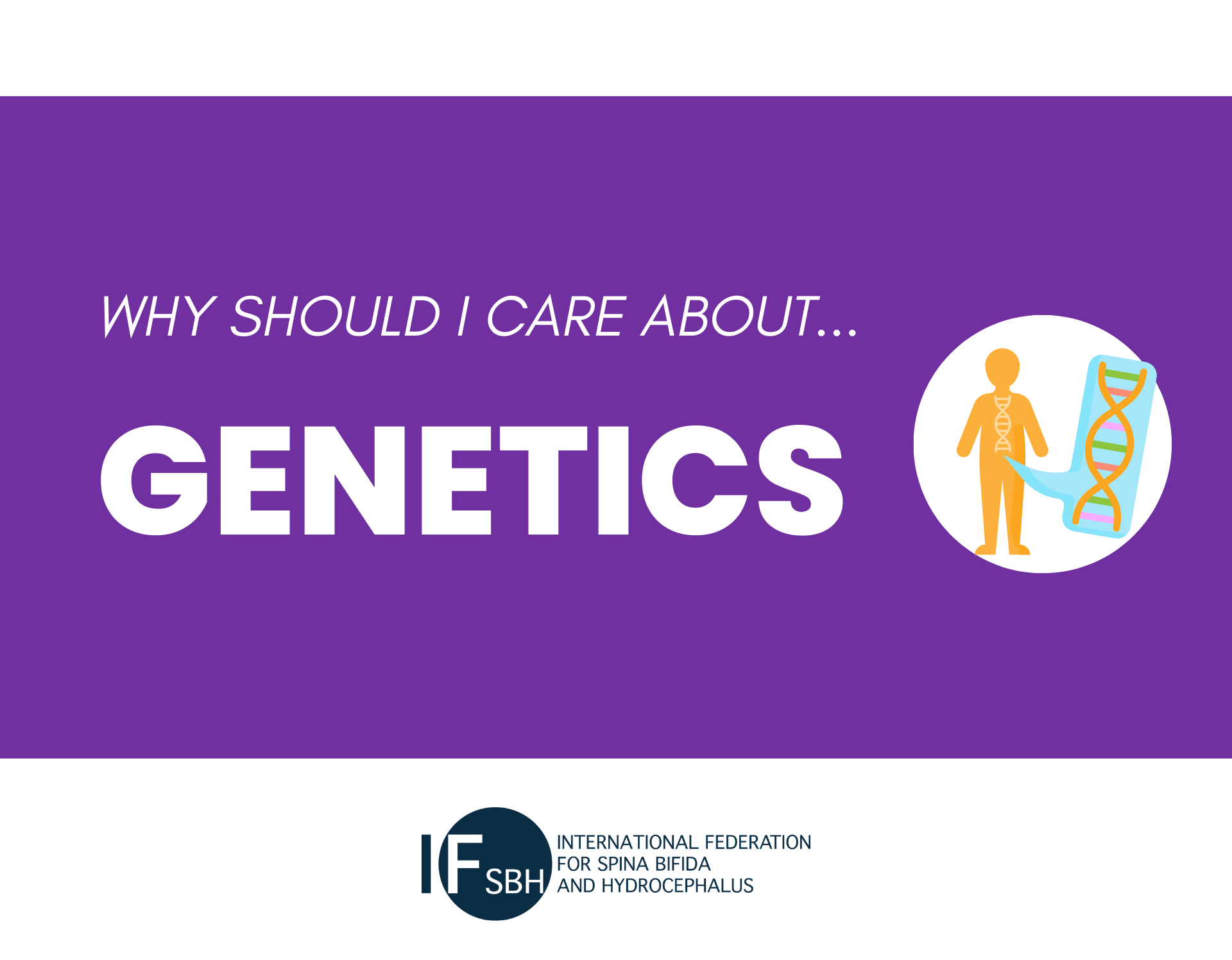On the occasion of the 78th World Health Assembly, held in Geneva from May 19 to 27, 2025, IF, together with UNICEF, Global Alliance for Improved Nutrition (GAIN), Global Alliance for Prevention of Spina Bifida (GAPSBiF), Food Fortification Initiative (FFI), Future Fortified, The G4 Alliance, Iodine Global Network, Micronutrient Forum, Nutrition International, and World Food Programme, organised the side event ‘Accelerating Action on Micronutrient Deficiencies and Their Consequences, Including Spina Bifida: Delivering on WHA 76.19 through Large-Scale Food Fortification’. The event was co-hosted by the Governments of the Arab Republic of Egypt, People’s Republic of Bangladesh, Islamic Republic of Pakistan, Republic of Chile, and Republic of the Philippines. The event took place at UNICEF’s offices in the ILO building on Tuesday, May 20, 2025, and represented a confluence of science, leadership, and commitment.
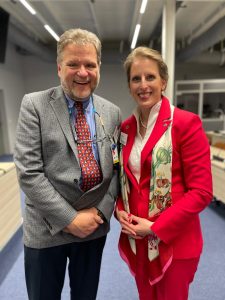 Moderated by Dr. Sylvia Roozen, IF Secretary General, and Dr. Jeffrey Blount, co-founder of GAPSBiF, the event highlighted how WHO Member States are making progress in advancing large-scale food fortification (LSFF) and are actively delivering on the goals set by Resolution WHA 76.19, aimed at preventing micronutrient deficiencies and their consequences. Through food fortification, recognised as the most cost-effective and ethically sound policy, the event underscored the importance of reducing the risk of neural tube defects (NTDs), such as Spina Bifida.
Moderated by Dr. Sylvia Roozen, IF Secretary General, and Dr. Jeffrey Blount, co-founder of GAPSBiF, the event highlighted how WHO Member States are making progress in advancing large-scale food fortification (LSFF) and are actively delivering on the goals set by Resolution WHA 76.19, aimed at preventing micronutrient deficiencies and their consequences. Through food fortification, recognised as the most cost-effective and ethically sound policy, the event underscored the importance of reducing the risk of neural tube defects (NTDs), such as Spina Bifida.
The programme featured opening remarks by Ms. Annalies Borrel, Senior Adviser for Nutrition and Social Protection at UNICEF and Dr. Luz Maria De Regil, Director, Department of Nutrition and Food Safety at World Health Organization (WHO). Both high-level speakers emphasized that fortifying staple foods with folic acid is not only the most cost-effective and ethical policy to reduce the risk of neural tube defects, including spina bifida, but also that cost-effective does not mean inexpensive. Such a policy requires sustainable investment, technical expertise, cross-sector collaboration, and a strong, shared commitment from all stakeholders involved.
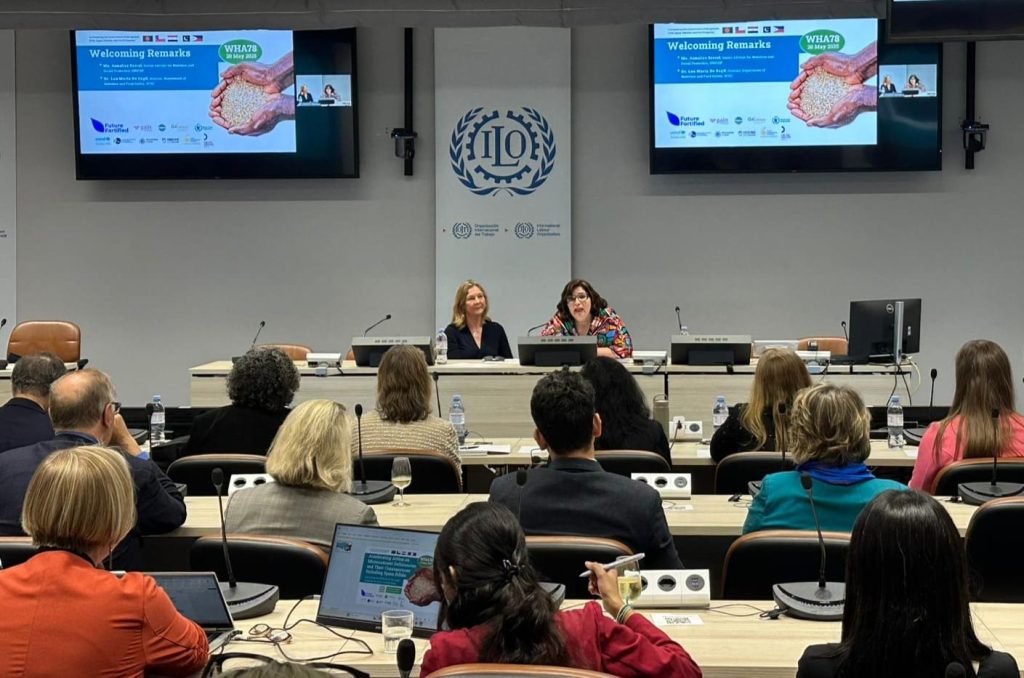
These remarks were followed by a high-level roundtable that brought together senior government officials to discuss national leadership in nutrition policy. Participants included Dr. Azucena M. Dayanghirang, Assistant Secretary at the Department of Health and Executive Director IV of the National Nutrition Council, Republic of the Philippines; DPR Ambassador Zaman Mehdi from the Islamic Republic of Pakistan; Prof. Dr. Abla Alalfy, Deputy Minister of Health and Population and Chairperson of the National Population Council, Arab Republic of Egypt; Professor Dr. Md. Abu Jafor, Director General (Additional Secretary) at the Directorate General of Health Services, Ministry of Health and Family Welfare, People’s Republic of Bangladesh. The discussion underscored the critical role of national leadership in shaping and sustaining effective nutrition strategies
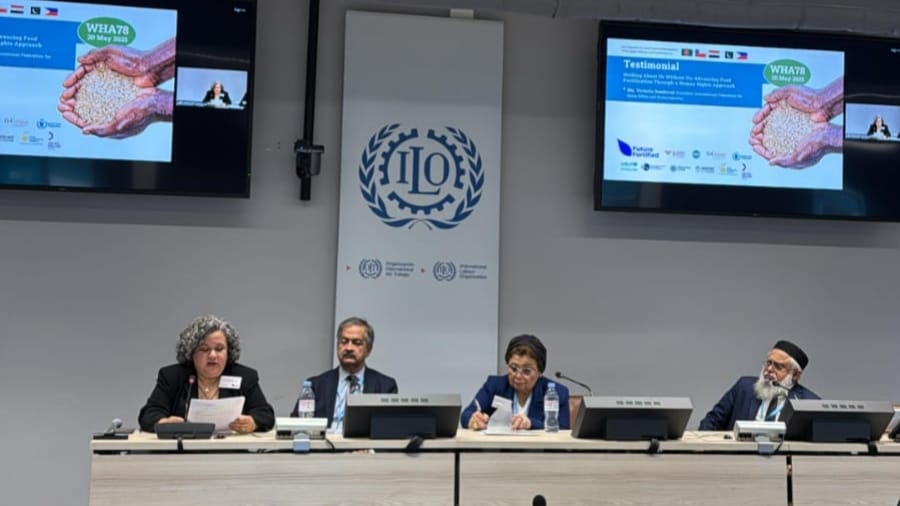
Two expert panels provided in-depth discussions:
The first panel, Mapping Micronutrient Needs and Maximizing the Impact of LSFF Programs, featured:
- Dr. Saskia de Pee, Senior Advisor, Analytics and Science for Food and Nutrition, World Food Programme, who presented on modelling, mapping, and predicting micronutrient intake gaps, and leveraging social protection where impact is needed most;
- Dr. Shruthi Cyriac, Senior Program Manager, Micronutrient Data Innovation Alliance at the Micronutrient Forum, who introduced the Global Fortification Data Exchange;
- Svenja Jungjohann, MSc, Senior Technical Specialist, Knowledge Leadership, Global
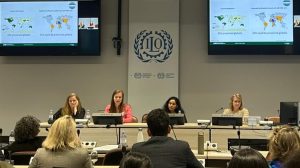 Alliance for Improved Nutrition (GAIN), who discussed estimating the potential impact of LSFF programs on micronutrient inadequacies;
Alliance for Improved Nutrition (GAIN), who discussed estimating the potential impact of LSFF programs on micronutrient inadequacies; - Dr. Anastasia Smith, University of Alabama at Birmingham, who presented on the promise of double fortified salt.
The second panel, Driving Impact Together: Donor, Public, Private, and Civic Collaboration to Advance Food Fortification, brought together voices from the philanthropic community, private industry, and civil society, including: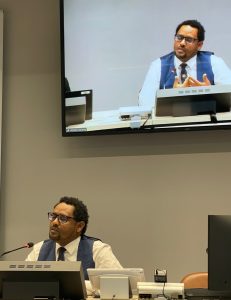
- Caitlin Smethurst, Senior Officer for Nutrition Advocacy and Communications, Gates Foundation;
- Yakob Ahmed, Country Director, Reach Another Foundation (IF Member Association), Ethiopia, member of the Rotary Club of Addis Ababa West.
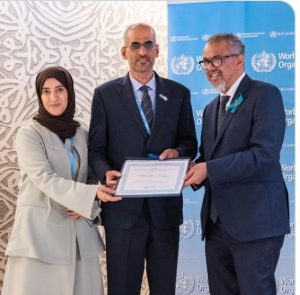
Member States also shared valuable testimonials from their national fortification journeys. Dr. Salima Al Maamari, Director of Nutrition at the Ministry of Health of the Sultanate of Oman, described Oman’s experience in implementing and scaling food fortification initiatives. Mary Muthoni Muriuki, Principal Secretary of the State Department for Public Health and Professional Standards at the Ministry of Health of Kenya, highlighted Kenya’s progress, key challenges, and the lessons learned in advancing its national fortification programme. On the picture, Dr. Salima who received an important recognition by WHO recognized for their outstanding efforts toward eliminating industrially produced earlier during the WHA78.
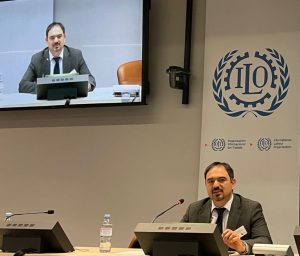
The event concluded with a forward-looking call to action by Dr. Kemel Ghotme, reinforcing the urgency and feasibility of accelerating LSFF initiatives globally. Read his full closing remarks here.
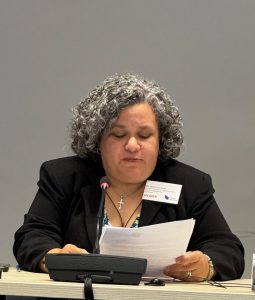
During the meeting, IF President, Victoria Sandoval, delivered a powerful message, strongly emphasising the importance of adopting a human rights-based approach to food fortification. She stressed on the moral and scientific imperative of folic acid fortification as a proven and cost-effective strategy to prevent NTDs. Stressing that prevention must go hand in hand with dignity and inclusion, she urged governments, civil society, and the private sector to act collectively in implementing WHA Resolution 76.19. IF President challenged harmful narratives that place the burden solely on women, emphasising that prevention is a shared societal responsibility. Her message was a powerful reminder that prevention and food fortification are not merely a technical measure, they are a matter of justice and human rights.
Read her full speech here.
As we look ahead, it is crucial to remember that the first report on the implementation of WHA Resolution 76.19 will be published in 2026. This is our moment to intensify efforts, ensure effective implementation, and reinforce our collective advocacy.
We call to action:
- Governments: To adopt strong national policies, grounded in science and supported by communities;
- The private sector: To become engaged and responsible partners in advancing public health;
- Civil society: To continue to elevate the voices of those who live every day with the consequences of inaction;
- The global community: To remember that prevention without inclusion is incomplete, because inclusion is the foundation of sustainable change.
As the IF President said: “Each one of us can make a difference. Together, we make change happen. A change in how we understand human rights based prevention not as a luxury, but as a right”.
- https://youtu.be/1PiFYF1DR24 (
French Version) - https://youtu.be/nsz444u5AZQ (
English Version) - https://youtu.be/M77_rOA6evA (
Spanish Version)
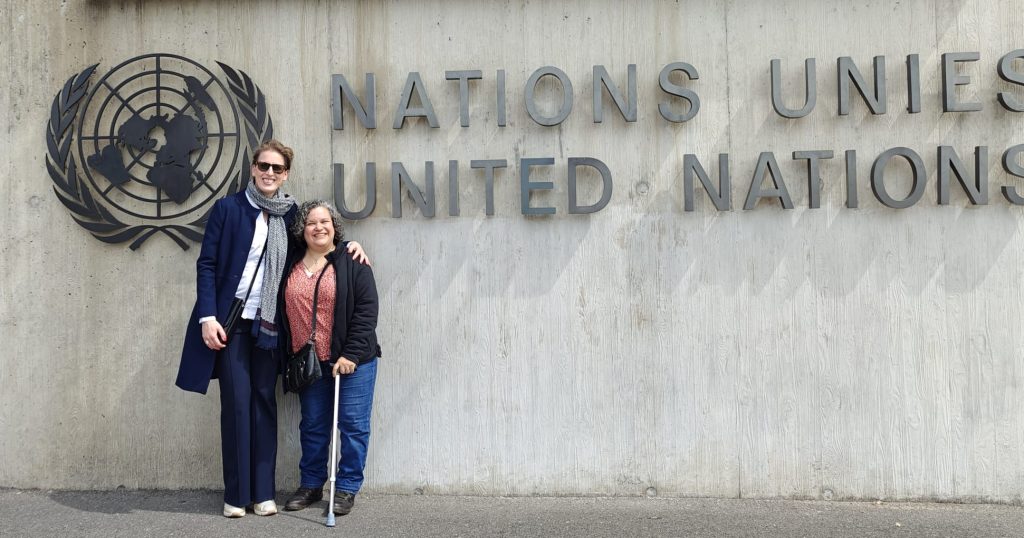


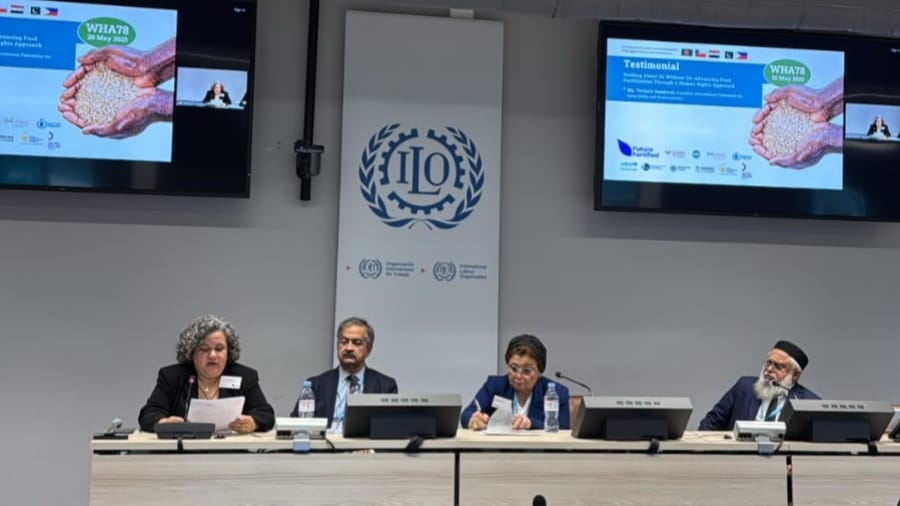
 Alliance for Improved Nutrition (GAIN), who discussed estimating the potential impact of LSFF programs on micronutrient inadequacies;
Alliance for Improved Nutrition (GAIN), who discussed estimating the potential impact of LSFF programs on micronutrient inadequacies;